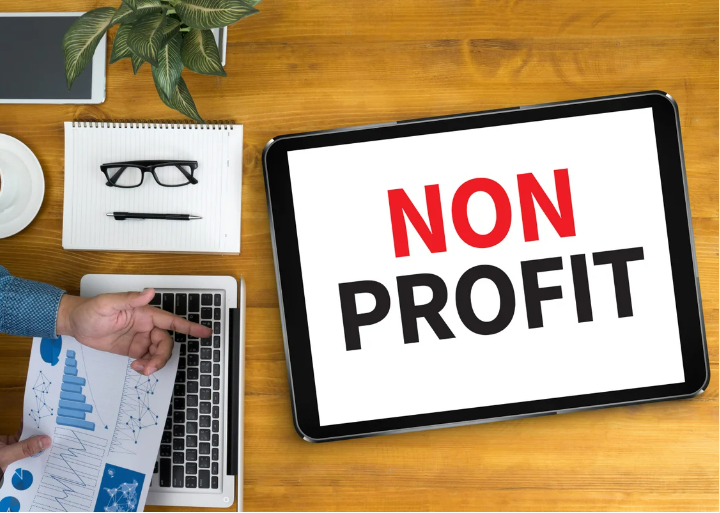Best Debt Relief Companies for Credit Card Debt of 2024


If you’re feeling overwhelmed by credit card debt, you’re not alone. The combination of high interest rates and compounding balances can make credit card debt seem especially daunting.
But relief is possible. In this article, we’ll explore the most effective strategies for managing and reducing credit card debt, helping you get back on the path to financial freedom.
Here’s a snapshot of the current state of credit card debt in the U.S.:
Is credit card debt forgiveness an option?
When facing significant financial challenges, the idea of having your debt forgiven can seem like a lifeline. While it’s unlikely that your credit card company will offer complete debt forgiveness, there are still options available for relief.
Start by reaching out to your credit card company to inquire about any available debt relief programs. Be cautious of claims about government-sponsored credit card debt forgiveness programs, as there are no such programs. Offers that promise government-backed relief are often scams.
Although full debt forgiveness is rare, you may be able to negotiate a lower payment plan, request a reduction in a portion of the debt, or secure a temporary decrease in your interest rate.
Options for credit card debt relief
Complete credit card debt forgiveness is rarely an option, but there are several effective strategies to help you get your credit card debt under control.
Debt consolidation
Debt consolidation is a strategy for managing credit card debt by combining multiple debts into a single monthly payment. This can be achieved through debt consolidation loans, balance transfer credit cards, or enrolling in a debt management program.
When consolidating credit card debt, you aim to simplify repayment by merging some or all of your debts into one monthly payment. Typically, this involves taking out a new personal loan with a lower interest rate to pay off existing debts. The goal is to secure better terms and streamline your financial obligations. Debt consolidation can accelerate your debt payoff and potentially improve your credit score over time, though it may temporarily impact your credit score initially.
Balance transfer credit cards offer another option for consolidating debt. By transferring balances from high-interest cards to a new card with more favorable terms, such as a 15- to 25-month introductory 0% APR period, you can pay off your debt without accruing additional interest. The length of the 0% APR period often depends on your credit score, so it’s beneficial to explore this option before missing payments.
Pros of Debt Consolidation:
- Lower interest rates or reduced fees
- Faster debt repayment
- Simplified management with a single monthly payment
- Potential long-term credit score improvement with timely payments
Cons of Debt Consolidation:
- Approval challenges, particularly with a lower credit score
- Commitment to a long-term repayment plan
- Additional loan fees
- Potential short-term credit score impact, especially if payments are missed
Debt settlement
Debt settlement involves negotiating with creditors to reduce the total amount of debt owed by offering a lump sum payment. This process typically includes funding an escrow account and proposing to pay off a portion of the debt that is less than the total amount due. You can negotiate directly with your credit card company, but reputable nonprofit credit counseling agencies can assist with the process or negotiate on your behalf.
Credit counselors provide valuable support not only in negotiating debt settlements but also in offering educational resources and budgeting advice to help you manage and eliminate debt. Be cautious with for-profit debt settlement companies, as some may be scams. Thoroughly research any company before committing.
During the negotiation process, most companies will advise you to stop making payments, which can lead to additional late fees and negatively impact your credit score. There is also no guarantee that the creditor will accept your settlement proposal, potentially resulting in further damage to your credit score without resolving your debt.
Pros of Debt Settlement:
- Potentially significant reduction in total debt owed
- Centralized contact for debt resolution
- Possible faster repayment timeline
- Avoiding bankruptcy
Cons of Debt Settlement:
- Negative impact on credit score
- Fees associated with the debt settlement process, even if unsuccessful
- Requirement to follow a structured repayment plan
- No guarantee that the lender will accept the settlement proposal
- Potential tax implications, as canceled debt may be considered taxable income
Bankruptcy
Bankruptcy is a legal process designed to provide relief from overwhelming debt by either liquidating assets or creating a repayment plan. Chapter 7 bankruptcy is typically suited for unsecured debts, like credit card balances, while Chapter 13 bankruptcy may be preferable if you wish to retain certain assets.
Though often considered a last resort, bankruptcy can be a viable option for those struggling with insurmountable debt when other solutions, such as debt consolidation, are not feasible. The bankruptcy process involves court proceedings and can be complex, but about 96% of Chapter 7 cases successfully discharge debts.
The primary benefit of filing for bankruptcy is the court order that can relieve you of certain debt obligations, offering a chance for a fresh financial start. However, it’s important to note that some debts, such as student loans, alimony, and certain older tax debts, may not be discharged. Additionally, bankruptcy will significantly impact your credit score for seven to ten years.
Pros of Bankruptcy:
- Potential discharge of qualifying debts
- Protection from creditor lawsuits during the bankruptcy process
- Exemption of certain property from being sold to settle debts
Cons of Bankruptcy:
- Possible forced sale of assets to repay debts
- Some debts may not be discharged
- Significant and long-lasting impact on credit score
Alternative ways to get out of credit card debt

In addition to traditional debt relief options, there are alternative strategies that can help you regain control of your credit card debt.
Financial counseling
Financial Counseling Working with financial and credit counselors can offer valuable guidance on budgeting, spending habits, and effective debt-management strategies. This support not only helps you get out of debt but also equips you with tools to avoid falling into debt again.
Snowball or avalanche methods
Debt repayment methods like the snowball and avalanche strategies can assist you in systematically addressing your credit card debt. The snowball method focuses on paying off the smallest debts first, providing quick wins and motivation. In contrast, the avalanche method prioritizes tackling debts with the highest interest rates first, potentially saving you more money on interest over time.
Regardless of the method you choose, continue making minimum payments on all your debts while focusing on one debt at a time.
Mistakes to avoid with debt relief
When seeking relief from credit card debt, be cautious of potential pitfalls that could worsen your financial situation. To ensure you’re on the right path, avoid the following:
Debt Relief Scams: Be wary of scams targeting individuals seeking credit card debt relief. Watch out for promises that guarantee debt forgiveness or improvements to your credit score without clear details.
Hidden Fees: Many debt relief solutions come with fees. Make sure you understand all associated costs upfront to avoid unexpected expenses.
Impulsive Financial Decisions: Avoid making hasty financial decisions that could undermine your stability. Debt relief is a long-term commitment that requires careful planning and persistence.
Ignoring Creditors: Failing to respond to creditors can lead to escalated collection efforts, additional fees, and further damage to your credit score. However, you’re protected from harassment under the Fair Debt Collection Practices Act if debt collectors overstep their bounds.
Predatory Lenders: Stay clear of high-interest loans offered by predatory lenders, as these can trap you in a cycle of debt and exacerbate your financial troubles.
In Conclusion
Managing credit card debt can feel overwhelming, but there are effective solutions available for relief. Whether you choose debt consolidation, settlement, or bankruptcy, understanding the benefits and drawbacks of each option will help you make an informed choice. Additionally, exploring alternative strategies and steering clear of common pitfalls can simplify your path to financial freedom.
The initial step toward a debt-free future is taking control of your credit card debt and evaluating the available solutions. If you’re uncertain about where to start, a nonprofit credit counselor can assist in assessing your options and guiding you through the process.








